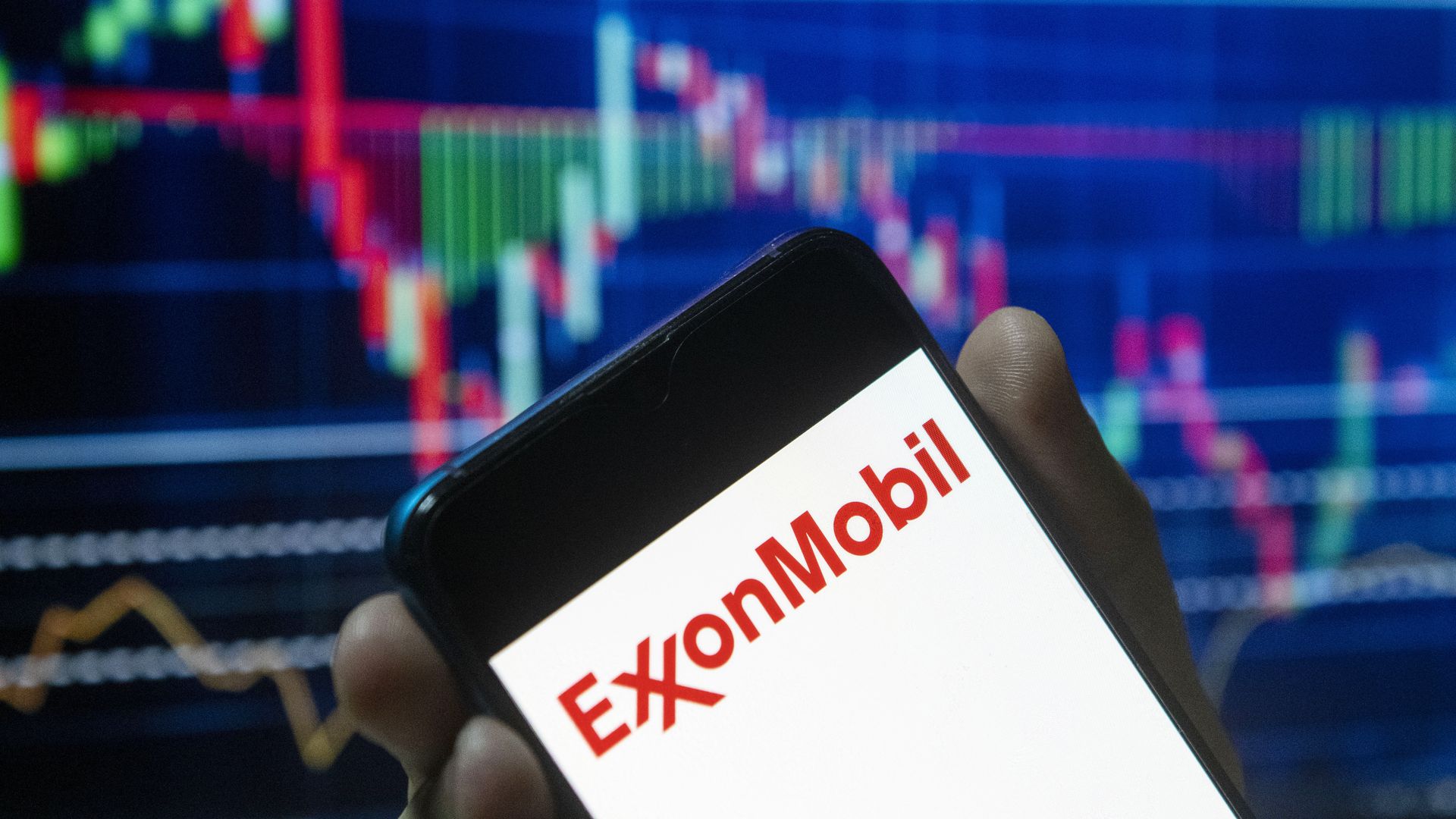Exxon vows new emissions curbs
Add Axios as your preferred source to
see more of our stories on Google.

Photo Illustration by Budrul Chukrut/SOPA Images/LightRocket via Getty Images
Exxon unveiled new targets on Monday for reining in greenhouse gas emissions in the coming years.
Why it matters: Exxon and Chevron are the two most powerful U.S. based multinational oil giants, and face increasing pressure from activists and investors to take stronger steps on climate.
Driving the news: Exxon said it would cut the greenhouse gas intensity — that is, emissions per unit of output — from its oil-and-gas exploration and production operations by 15%-20% by 2025 compared to 2016 levels.
- The company vowed a 40%-50% cut to the intensity of its emissions of the highly potent greenhouse gas methane.
- Exxon also pledged a steep drop in the practice of flaring — or burning — natural gas at its operations by 2025 and an end to "routine flaring" by 2030.
- Another part of the pledge: begin reporting on emissions from use of its products like gasoline in the economy, called scope 3 emissions, next year.
What they're saying: "These meaningful near-term emission reductions result from our ongoing business planning process as we work towards industry-leading greenhouse gas performance across all our business lines," CEO Darren Woods said in a statement.
Of note: Intensity targets are not a measure of absolute emissions, and it's not clear how much those might fall under the new plan. Exxon did not immediately respond to an inquiry on the topic.
But Andrew Logan, an oil expert with the sustainable investment advocacy group Ceres, tells Axios those intensity targets should bring an absolute emissions reduction.
Yes, but: Logan, who carefully tracks industry emissions plans, said Exxon is still lagging in the climate space.
- "There are some things to like in here, particularly around the flaring and methane commitments, but overall this is underwhelming and fails to address ExxonMobil's main source of risk — its product emissions," he said in an email.
- "This set of commitments would have been leading edge five years ago, but at a time when even U.S. peers like Occidental and ConocoPhillips have set net zero ambitions for their operational emissions (and are also committing to address scope 3) this feels grossly inadequate," he added.
Between the lines: Exxon and Chevron have been announcing more climate goals in recent years.
- But they have steered clear of vows by Europe-based multinational oil companies like BP and Shell to become net-zero emitters by midcentury.
- And the European players have been more aggressive in moving into areas like renewable power and electric vehicle charging, though oil-and-gas remain the dominant business lines for these companies on both sides of the Atlantic.
- And unlike those European companies, Exxon is not pledging to ensure reductions in scope 3 emissions.
